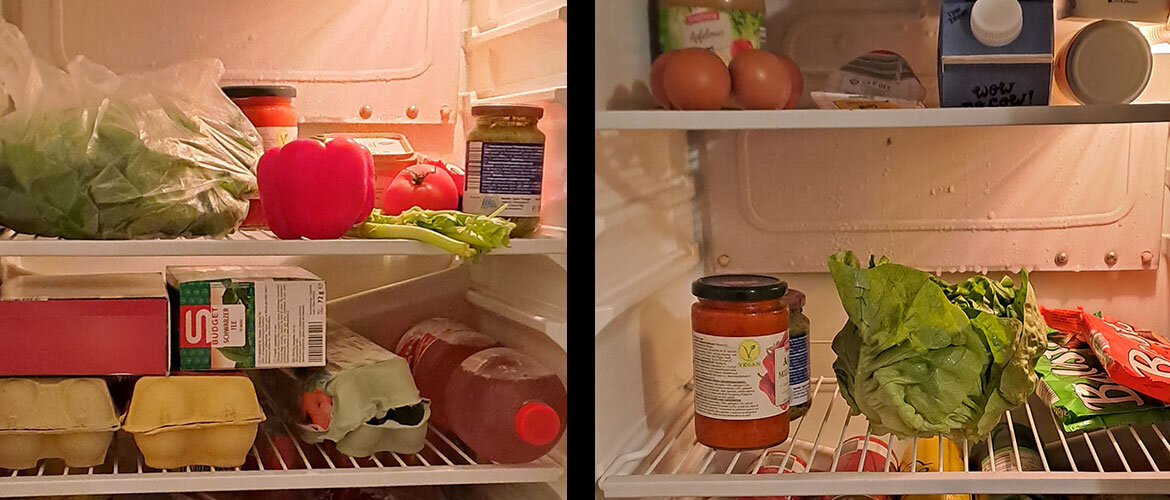Validation of energy-saving measures in the home
- 18.04.2023
- Practical Project

Whether a refrigerator is filled with packaged or unpackaged food has an impact on energy consumption.
There are tips on how to save electricity a dime a dozen on the internet. But are the recommendations practical to implement and – more importantly – are they trustworthy?
As part of the Energy.Saving.Check practical project, students in their 5th semester of the Bachelor's degree program in Energy and Sustainability Management explored the question of which tips and tricks for saving energy are actually practical and which are not suitable for implementation. Equipped with measuring instruments from the EFIM laboratory, many a shared flat became a field for sophisticated experiments.
THE FRIDGE AS AN ENERGY HOG
Of course, no one has to do without their refrigerator. But what is the most efficient way to use the appliance? With the necessary patience and persistence, it can be shown that regular defrosting of the freezer compartment reduces consumption. It is more difficult to measure how much consumption increases when the refrigerator door is opened unnecessarily often or when food is stored in packaging instead of being stored properly. Ultimately, the question arises as to when the purchase of a new refrigerator is unavoidable. On closer inspection and measurement, it becomes clear that some common tips, while plausible, are practically insignificant: others, on the other hand, have a major influence on energy consumption.
THERE ARE MANY WAYS TO REDUCE YOUR POWER CONSUMPTION
In several sub-groups, the students looked at various areas of electricity consumption – from electric cars to cooking pasta to blow-drying hair. It became clear that in many cases it is not easy to determine consumption. Conventional measuring devices cannot measure standby losses because the power is too low. Evaluating the benefits of intermittent ventilation compared to continuous ventilation requires determining the quality of the air in the room. During many of the investigations, the students had to rely on information from the appliance manufacturers or test results from the internet.
DISCUSSION WITH EXPERTS
The results were presented and openly discussed in a concluding discussion with experts from industry and politics. The experts were impressed, but it was quickly agreed that this can only be a first step. Methods and measuring procedures would have to be developed to scientifically evaluate and convincingly communicate tips for saving energy. Project supervisor Prof. (FH) Dr.-Ing. Wolfgang Woyke is also convinced of the importance of the project work: “We have already received expressions of interest from various sides to further develop the topic. With the Energy.Saving.Check, we were able to gain initial experience to initiate and implement further projects for saving energy.”
